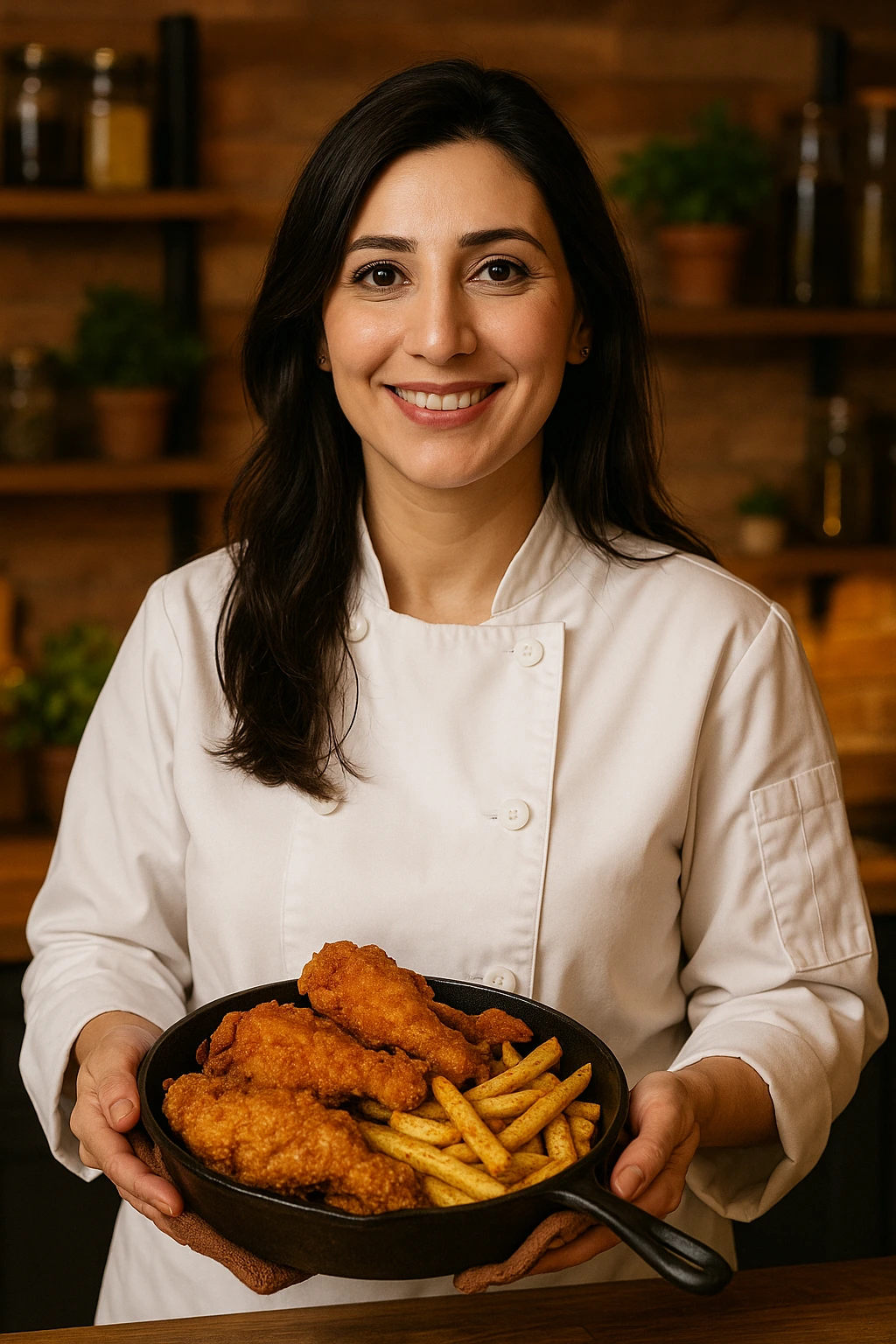Yes, but only in the loosest sense. Crown Fried Chicken operates under a brand-licensing “quasi-franchise”, meaning the name and logo are trademark-protected, yet almost every restaurant is owned and run by independent operators rather than a single corporate parent.
How the Crown Fried Chicken “Franchise Model” Really Works
A loose licensing network, not a classic chain
- Trademark anchor: The mark Crown Fried Chicken is registered to a Jersey City corporation, giving that entity authority to license the brand.
- Minimal central control: Unlike KFC or Popeyes, there is no national headquarters setting menus, décor, or supply contracts. Store owners decide those details themselves.
- Community roots: Most outlets were launched by Afghan-American entrepreneurs who share suppliers and recipes informally, creating a recognizable look without formal franchisor oversight.

Independent Crown Fried Chicken Outlets in Action
Because stores choose their own recipes and décor, no two locations are identical. One may focus on halal fried chicken and kebabs in Portland, Maine, while another operates as Crown Fried Chicken & Grill with LLC status in Brooklyn. This flexibility lets owners tailor prices, sides, and operating hours to neighborhood tastes, a hallmark of the independent Crown Fried Chicken outlets model.
What Does It Cost to Open One?
There is no published “Crown Fried Chicken franchising cost” sheet. Instead, owners cover two buckets:
- Startup for any fried-chicken shop: Rent, equipment, permits and staffing typically run $125,000 – $500,000, with the U.S. median around $275,000–$425,000 depending on size and location.
- Brand licensing expenses: Some operators pay a modest one-time or annual fee to use the trademark, negotiated privately with the mark holder. Because fees are low compared with big QSR brands, many entrepreneurs see Crown as an affordable entry point into the fried-chicken business.
Crown Fried Chicken Ownership Structure
- Local LLCs and sole proprietors: Each restaurant files its own business entity (often an LLC) and handles taxes, payroll and insurance independently.
- Shared suppliers, shared know-how: Owners often buy spices, breading and packaging from the same wholesalers, preserving the familiar flavor profile even without a single corporate supply chain.
- No national royalty stream: Outside of any negotiated trademark fee, profits stay with the local owner, there is no 5–6% royalty or national ad fund like classic franchises.
Key Takeaways
- Crown Fried Chicken is a hybrid: a recognizable brand held together by a trademark and community ties, not by strict franchisor rules.
- Lower barriers to entry: Modest licensing costs and DIY operations attract entrepreneurs priced out of big chains.
- High variability: Menu, pricing, décor and service quality can differ widely from one store to the next, so customers and owners alike enjoy great freedom.
Conclusion
Crown Fried Chicken occupies a unique niche: a loosely linked network of small businesses unified by a common name and spice blend rather than by corporate mandates. For aspiring restaurateurs, that means lower fees and more freedom. For diners, it means every Crown visit delivers familiar crispy chicken, yet always with a local twist.
FAQs
Do Crown Fried Chicken stores pay royalties like other franchises?
No. Most owners only arrange a small licensing agreement for brand use; there is no unified royalty system.
Can anyone open a Crown Fried Chicken?
In principle, yes provided you reach a trademark agreement and meet local food-service regulations. You’ll also need enough capital to outfit a kitchen, roughly $125k–$500k in typical restaurant costs.
Why do menus vary from store to store?
Because each outlet is independently owned, operators choose their own recipes, sides and prices, leading to regional twists such as shawarma or seafood add-ons.
Is the food always halal?
Many locations market halal chicken to serve Muslim communities, but certification is up to each owner. Always look for the halal certificate at the specific shop.
How does Crown Fried Chicken differ from its cousin, Kennedy Fried Chicken?
Both began as Afghan-American entrepreneurial spin-offs in New York. Kennedy and Crown share similar menus and independent ownership structures; the main difference is branding.

Hi, I’m Lena Brooks, a proud Southern soul who grew up in my grandmother’s kitchen. For over eight years, I’ve been perfecting crispy fried chicken, zesty seafood boils, and juicy homemade burgers. I love giving classic recipes a healthy twist think keto-friendly, vegan, or kefir-infused and every dish is tested in my own kitchen to make sure it’s foolproof and delicious. Whether you’re just starting out or you’ve been cooking for years, join me for simple, heartwarming recipes that bring people together.
